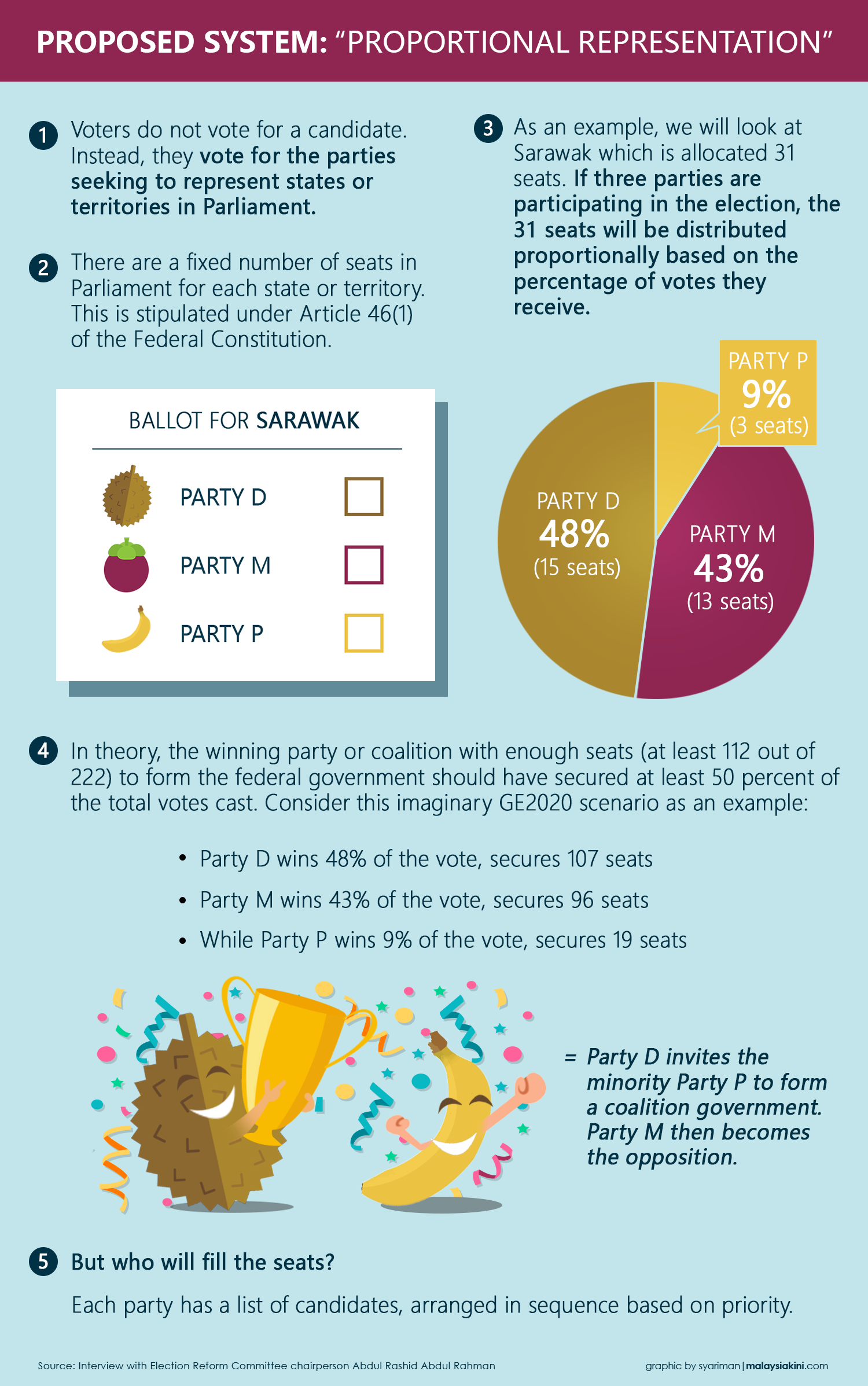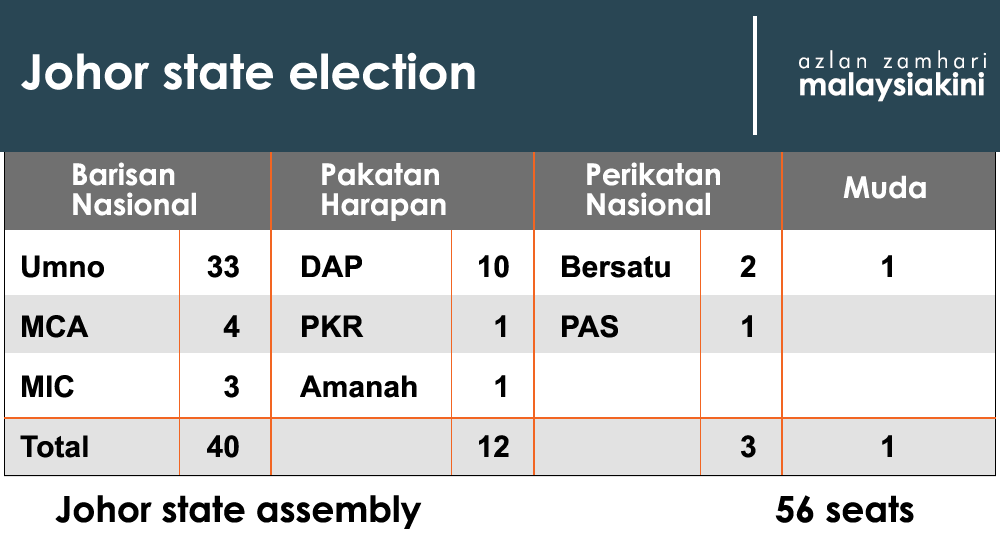The Johor polls have shown again how under the first past the post (FPTP) electoral system, a party that received less than 45 percent of votes can win more than 66 percent of seats.
But yet, despite the obvious flaw and highly disadvantageous polling system, most parties are still fixated on legislating an anti-hopping bill.
To put it kindly, this is nothing short of stupid.
The anti-hopping bill is putting a Band-aid over a gaping wound and pretending everything is ok.
It also reflects the quintessential mindset that many associate with politicians and the public service, that is to only solve problems after they happen, and not bother taking preventive measures.
You see, an anti-hopping bill is only useful after an election when someone defects.
What use is that when 67 percent of voters don't get the representation they wished for in the first place?
(BN won about 43 percent of the popular vote, while Pakatan Harapan Plus won 30 percent, and Perikatan Nasional 24 percent.)

The solution is painfully obvious and has already been planned out: a proportional representation (PR) or party-list system.
The PR system had been mooted by the Election Reform Committee (ERC) when Harapan was in power.
Under this system, there won't be any constituencies. Voters will instead vote for parties and the share of seats will then be divided proportionally, depending on the number of seats available.
In the Johor example, BN would have won 24 seats, Harapan Plus 17 seats, and Perikatan Nasional (PN) 13 seats, with the remaining two seats going to the runner ups.
No one would have had a majority to form a government in this scenario, which would have necessitated coalition building.
While many party supporters will froth at the mouth at the idea of certain parties working together, this will force compromise and could lead to more mature (not the PAS type) politics.

This is not ideal of course for greedy politicians who want everything for themselves, but if they want to keep on being losers who blame voter turnout and logos and whatnot, then so be it.
But if they do want to turn things around, it would not be impossible.
Harapan and PN have the numbers in Parliament to make this happen if they can overcome certain roadblocks from the Dewan Rakyat Speaker's office.
Harapan has 90 MPs, and PN has 50. Combined with 14 other opposition MPS, they have more than 144 MPs needed to form a two-thirds majority needed to amend the Federal Constitution and get rid of FPTP.
It is now just a matter of these two coalitions getting it through their thick skulls that changing the electoral system is vitally important for their own political survival. - Mkini





No comments:
Post a Comment
Note: Only a member of this blog may post a comment.